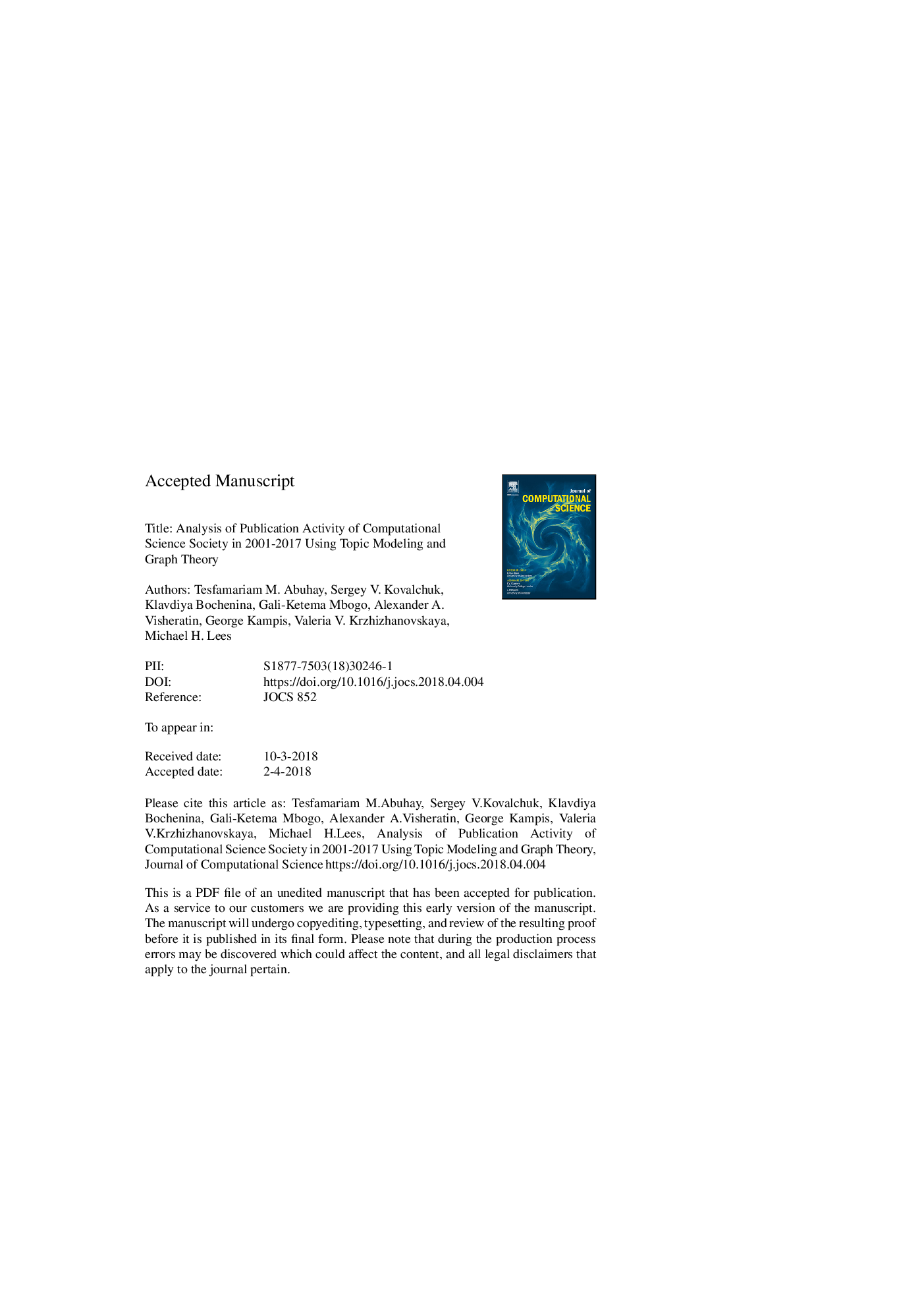| Article ID | Journal | Published Year | Pages | File Type |
|---|---|---|---|---|
| 6874346 | Journal of Computational Science | 2018 | 27 Pages |
Abstract
This paper presents the results of topic modelling and analysis of topic networks using the corpus of the International Conference on Computational Science (ICCS), which contains 5982 domain-specific papers over seventeen years 2001-2017. We discuss the topical structures of ICCS, and show how these topics have evolved over time in response to the topicality of various domains, technologies and methods, and how all these topics relate to one another. This analysis illustrates the multidisciplinary research and collaborations among scientific communities, by constructing static and dynamic networks from the topic modelling results and from the authors' keywords. The results of this study provide insights regarding the past and future trends of core discussion topics in computational science and show how “computational thinking” has propagated across different fields of study. We used the Non-negative Matrix Factorization (NMF) topic modelling algorithm to discover topics. The resulting topics were then manually labelled and grouped hierarchically on three levels. Next, we applied trend analysis and Change Point Analysis (CPA) to study the evolution of topics over seventeen years and to identify the growing and disappearing topics. We used Gephi to examine the static networks of topics, and an R library called DyA to analyse the dynamic networks of topics. We also analysed the conference as a platform for potential collaboration development through the perspective of collaboration networks. The results show that authors of ICCS papers continue to actively collaborate after the conference â on average authors collaborate with three other ICCS authors, â which suggests that ICCS is a valuable platform for collaboration development.
Keywords
Related Topics
Physical Sciences and Engineering
Computer Science
Computational Theory and Mathematics
Authors
Tesfamariam M. Abuhay, Sergey V. Kovalchuk, Klavdiya Bochenina, Gali-Ketema Mbogo, Alexander A. Visheratin, George Kampis, Valeria V. Krzhizhanovskaya, Michael H. Lees,
